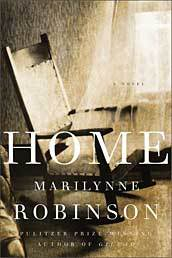
Like all the parables in the New Testament, the story of the prodigal son poses more questions than it answers. Yes, the power of mercy is laid out like the banquet table in this story about the wayward son whose return calls for a feast. But why should the “bad” son become the celebrated one? And what happens after the party to welcome him home? Can bygones really be bygones?
These are not idle questions for the novelist Marilynne Robinson, whose novel Home is a fitting match with her critically acclaimed, bestselling Gilead of a few years back. In the earlier story, the voice of the kindly Rev. John Ames, a small-town Iowa pastor, recaptures American life and values in the first half of the twentieth century. Her new novel moves a short distance, into the household of the Rev. Robert Boughton, Ames’s best friend. But this novel, featuring characters that also populated Gilead, is a far darker one told from several points of view.
Boughton’s black-sheep son, Jack, suddenly reappears after two decades, to the clear delight and concealed dismay of his widowed father and unmarried sister, Glory. They can forgive but not quite forget. As for Jack, it appears he can’t do either.
Robinson, a writer who doesn’t take the world or theology lightly, creates a portrait of this reunion that’s complex, psychologically astute, and ultimately sad. In her earlier book, she gave us a look at abiding faith. This time, you might say she refuses the balm of Gilead.
Home is a novel about the corrosive nature of guilt and shame. It’s about family and the way it frames our sense of self. And it’s also about love––loving God, loving others, and, sometimes the hardest of all, loving yourself.

